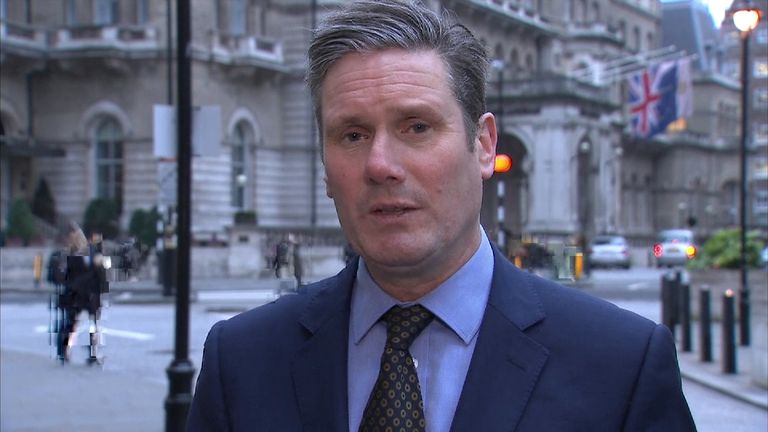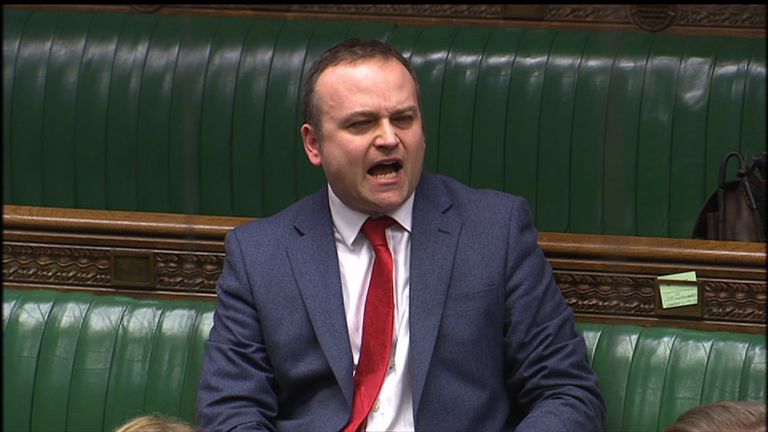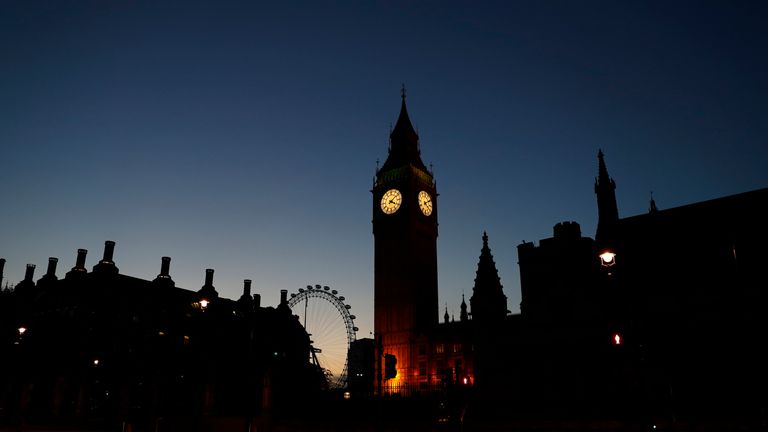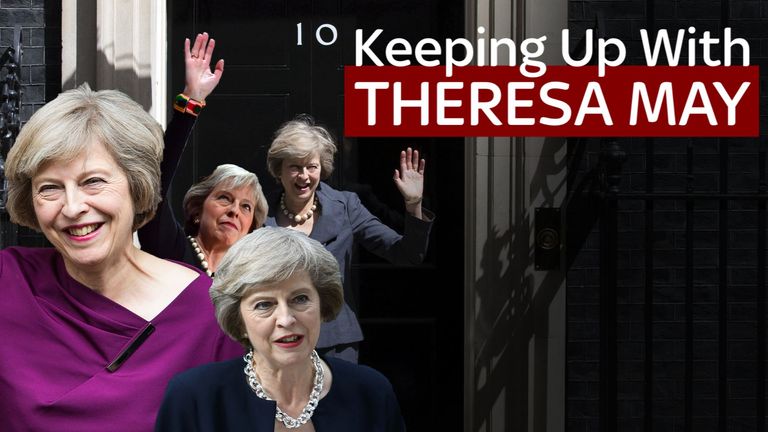Corbyn resignation claims denied as he comes under pressure over Brexit vote
Jeremy Corbyn's team deny a suggestion he has given a departure date, as he faces a possible rebellion on today's Brexit vote.
Thursday 9 February 2017 08:59, UK
The Labour leader has dismissed as "absolutely unfounded and untrue" claims he has given the party a date for his resignation.
Sources close to Jeremy Corbyn were forced to deny the suggestion he had given his inner circle a date he would step down on as he prepared to face down a rebellion over the Brexit vote.
Mr Corbyn could see the resignations or sackings of his close ally Diane Abbott and Clive Lewis over the third reading of the Government's Article 50 bill.
He has ordered his MPs to vote for the bill, but left-wingers Ms Abbott and Mr Lewis are likely to have to resign from the shadow cabinet or be sacked if they defy a three-line whip.
Mr Lewis voted with the Government last week but later promised his constituents he would resign rather than pass the bill unamended.
His resignation would be a significant blow - three shadow cabinet members resigned last week.
Speaking on Wednesday morning, Mr Lewis hinted he could resign over the vote saying he had a "lot on his plate" and that it was his "intention to do what's right by my constituents".
Asked if he would resign if he defied the whip, he added he would "make a decision later today and you'll get to hear about it".
Ms Abbott, a close ally of Mr Corbyn, failed to turn up for the first vote on the bill last week, saying she had a migraine - sparking suggestions she had come to an agreement with the leader.
Speaking to Sky News this morning, shadow Brexit secretary Sir Keir Starmer repeatedly refused to be drawn on whether Ms Abbott would turn up for the vote, resign, or defy the whip and be sacked.
Sky's All Out Politics presenter Adam Boulton disclosed in December that a senior Labour figure told him Mr Corbyn had said he would not go on past his 70th birthday in May 2019 and didn't want to fight a general election as party leader.
Mr Corbyn was defied by 47 pro-Remain Labour MPs in last week's second reading vote.
The bill is due to complete its committee stage after three days of debate, followed by a third reading vote, and it will then go to the House of Lords in 12 days' time.
Before the third reading vote, MPs will also vote on the contentious issue of the rights of EU nationals living in the UK and the Government could face a
Seven Conservative MPs - Heidi Allen, Ken Clarke, Bob Neill, Claire Perry, Antoinette Sandbach, Anna Soubry and Andrew Tyrie - backed a Labour demand for a Commons vote before a Brexit deal, despite a Government concession.
Former Cabinet minister Nicky Morgan abstained and was seen angrily arguing with Government whips during the division, while former Chancellor George Osborne was absent at a speaking engagement in Antwerp.
A promise by the Brexit minister David Jones that MPs would vote on the final draft Brexit agreement before the European Parliament - seen by MPs as a "deal or no deal" vote - was enough to persuade many would-be Tory rebels to back the Government.
The Government is now hoping a letter from the Home Secretary Amber Rudd to MPs suggesting there will be no change to the status of EU nationals without Parliament's approval will head off a second rebellion.
Day two of the committee stage ended with two more comfortable majorities for the Government in votes on opposition new clauses to the European Union (Notification of Withdrawal) Bill.
The Government's majority was cut to 33 when the seven Tory rebels backed Labour's call for a final Brexit deal vote, despite many of them being called to a face-to-face meeting with the Prime Minister.
The Government won the vote by 326-293, however, as six Labour MPs - Frank Field, Ronnie Campbell, Kate Hoey, Kelvin Hopkins, Graham Stringer, and Gisela Stuart - cancelled out the Tory rebels by voting with the Government.
A number of Labour MPs criticised the "take-it-or-leave-it" vote on the final draft of the EU exit agreement, which would give Parliament a choice between the Government's deal or falling back on potentially damaging World Trade Organisation rules.
However, Sir Keir welcomed the move, putting him at odds with many in his own party, saying the PM was unlikely to put a deal that wouldn't have the confidence of MPs to the House of Commons.
He suggested the Government was bluffing, saying if the deal did not have the support of MPs it would be "reckless" of Mrs May not to return to the EU and continue negotiations.
But, speaking in the House of Commons on Tuesday, Mr Jones told MPs: "I can't think of a greater signal of weakness than for this house to send the Government back to the European Union and say we want to negotiate further."







